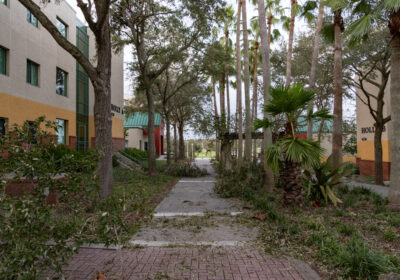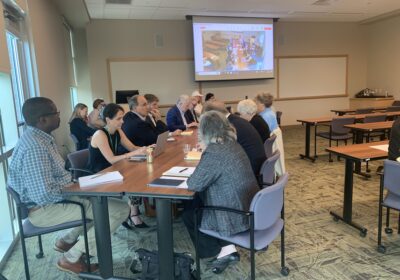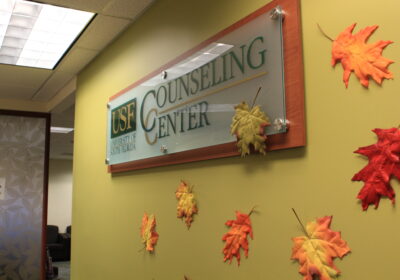New Urology professor wants to improve program
A new assistant professor may be just what the doctor ordered for USF’s urology department. Dr. David Hernandez became the newest of 11 clinical faculty members in the department this month, bringing with him expertise in prostate cancer and minimally invasive surgery – areas of interest at USF.
“There have been urologists at USF for 20-plus years, but we’re a fledgling department,” Hernandez said. “I would really like USF to have more of a cancer presence … I think we’ll make major strides in treating patients in the near future.”
Hernandez, who just finished his medical residency last year, developed a “prostate cancer biopsy predictive model,” he said,that calculates a man’s risk of having prostate cancer based on age, race, family history and if he has undergone any previous biopsies.
“I’d like to enhance our laparoscopic and robotic methods for surgery, for the prostate and the kidney specifically,” Hernandez said. “I think USF is really in a unique position
to become a training destination for minimally invasive technology. And I think I’d really like to work with others in other departments in maximizing our teaching … and pushing the envelope in our simulation models for advancing surgical skills.”
The urology department, which was founded in 2009 and is the youngest of 19 departments in the College of Medicine, graduates two or three residents each year and works alongside Tampa General Hospital, Moffitt Cancer Center and the James A. Haley Veterans Administration (VA) in the diagnosis and treatment of diseases in the urinary tract.
Faculty members are hoping Hernandez, who studied at Johns Hopkins University, will be able to “bring a high level of professionalism and expertise to the program,” said Department Administrator Karyn Aldridge.
“He’s very academically oriented, so we think he’ll really enhance our residency
program didactically and surgically,” she said. “I think he has extensive training, so that will certainly enhance our training program.”
Although USF Health is investing “a lot of money” to implement these new surgical programs, Hernandez said the department has also partnered with Moffitt Cancer Center and several major corporations for funding.
Despite having only four faculty members that work full time on campus, Hernandez said the urology department will always provide patients with “state-of-the-art care” and “an emphasis on the newest technologies.”
“I think our robotic experience is going to continue to enhance patient recovery of function, postsurgical,” Hernandez said. “So I’d say that’s where the biggest advantage for patient is, that we provide it in a personal way. I’ve had so many patients that tell me, ‘You know, thank you for taking the time to explain things to me. I’ve been to five other doctors,’ and we really are a good referral. I think patients really appreciate it.”






